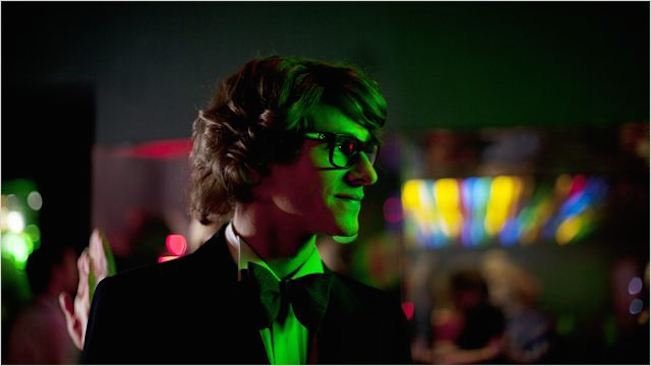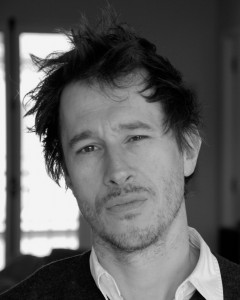By Jake Howell jake.howell@utoronto.ca
Countdown To Cannes: Bertrand Bonello
 The eleventh in a series of snapshots outlining the nineteen directors in the 67th Palme d’Or Competition.
The eleventh in a series of snapshots outlining the nineteen directors in the 67th Palme d’Or Competition.
Background: French; born Nice, France 1968.
Known for / style: The Pornographer (2001), Tiresia (2003), House of Tolerance (2011); films that depict sex and sexuality openly or explicitly; an accomplished background in music; works that are typically associated with New French Extremism; a filmography that includes several shorts; working with actors Laurent Lucas and Jérémie Renier and collaborating with cinematographer Josée Deshaies; screenwriting in addition to directing.
 Notable accolades: In terms of trophies, Bonello has been quiet on the festival circuit; he picked up a lone FIPRESCI prize in 2001 for his Critics’ Week film The Pornographer. House of Tolerance was thrice-nominated for France’s local Prix Lumière (Best Film, Best Director, Best Screenplay) but did not win. In 2009, Bonello snagged Miami’s “Cutting the Edge” award for his film De la Guerre (2008).
Notable accolades: In terms of trophies, Bonello has been quiet on the festival circuit; he picked up a lone FIPRESCI prize in 2001 for his Critics’ Week film The Pornographer. House of Tolerance was thrice-nominated for France’s local Prix Lumière (Best Film, Best Director, Best Screenplay) but did not win. In 2009, Bonello snagged Miami’s “Cutting the Edge” award for his film De la Guerre (2008).
Previous Cannes appearances: Not part of the Official Selection yet still on the Croisette, The Pornographer debuted at the 2001 Critics’ Week. Bonello has since played twice in Competition (Tiresia, 2003; House of Tolerance, 2011) and once out of Competition (the 2005 short film Cindy, The Doll is Mine).
Film he’s bringing to Cannes: Saint Laurent, Bonello’s biographical depiction of iconic fashion designer Yves Saint Laurent. Not to be confused with Jalil Lespert’s Yves Saint Laurent (released earlier this year), the title role is played by Gaspard Ulliel and features Léa Seydoux (Blue is the Warmest Color), Louis Garrel (seen last at Cannes last year for A Castle in Italy), Jérémie Renier, and Helmut Berger. Seydoux plays Loulou de la Falaise, YSL’s close friend and fellow designer, while Renier plays Pierre Bergé, his former partner. The film is co-written by Jacques Audiard’s go-to scribe Thomas Bidegain, who helped pen A Prophet (2009) and Rust and Bone (2012).
Could it win the Palme? Trailing the pack of French-language films in the 2014 Competition is Saint Laurent, a film that faces the unfortunate reality of being screened in the wake of Berlin-bowing Yves Saint Laurent. Bonello’s critical success isn’t as established as his contemporary Competition (House of Tolerance was hit-or-miss at the Salle Debussy), so while his cast is certainly formidable, this is a film that will likely live or die on Gaspard Ulliel’s performance. That means we could see an acting prize for Ulliel if he pulls it off, as is usually the case with biopics; otherwise, this film seems an unlikely winner, and one that was initially questioned by some for being included in Competition at all.
Why you should care: Not that anyone was asking for two films on Yves Saint Laurent in the same year, but Lespert’s attempt wasn’t exactly a blockbusting success. Judging from his previous works it appears Bonello’s taken a more commercial approach (Saint Laurent is likely his most distributable), and if his attempt at the designer is stronger than Lespert’s, then so be it—we’ll take it. The film will also check in on 2013 Competition alumni Léa Seydoux and Louis Garrel, and damned if Garrel can’t do better than A Castle in Italy.
Follow Jake Howell on Twitter: @Jake_Howell
Previous Entries:















